As a business owner, you're constantly looking for ways to work more effectively. This issue lends itself to the usage of process automation and AI integration. AI is no longer a distant, fantasy concept; it is an ever-evolving reality.
Thanks to AI, any size company across all industries may see a big qualitative shift, which can also create new possibilities. Nearly all IT organizations, as well as those in the financial, educational, healthcare, automotive, and construction sectors, employ AI extensively.
With each innovation, using it in business operations becomes simpler and more effective. When artificial intelligence (AI) technology is seamlessly incorporated into your present processes, you'll be amazed at what it can do for you.
What is AI Integration and Orchestration?
Integration and orchestration of artificial intelligence (AI) is the act of seamlessly integrating different AI tools and applications into your existing systems. Companies may now automate time-consuming, repetitive tasks that were previously done by hand. 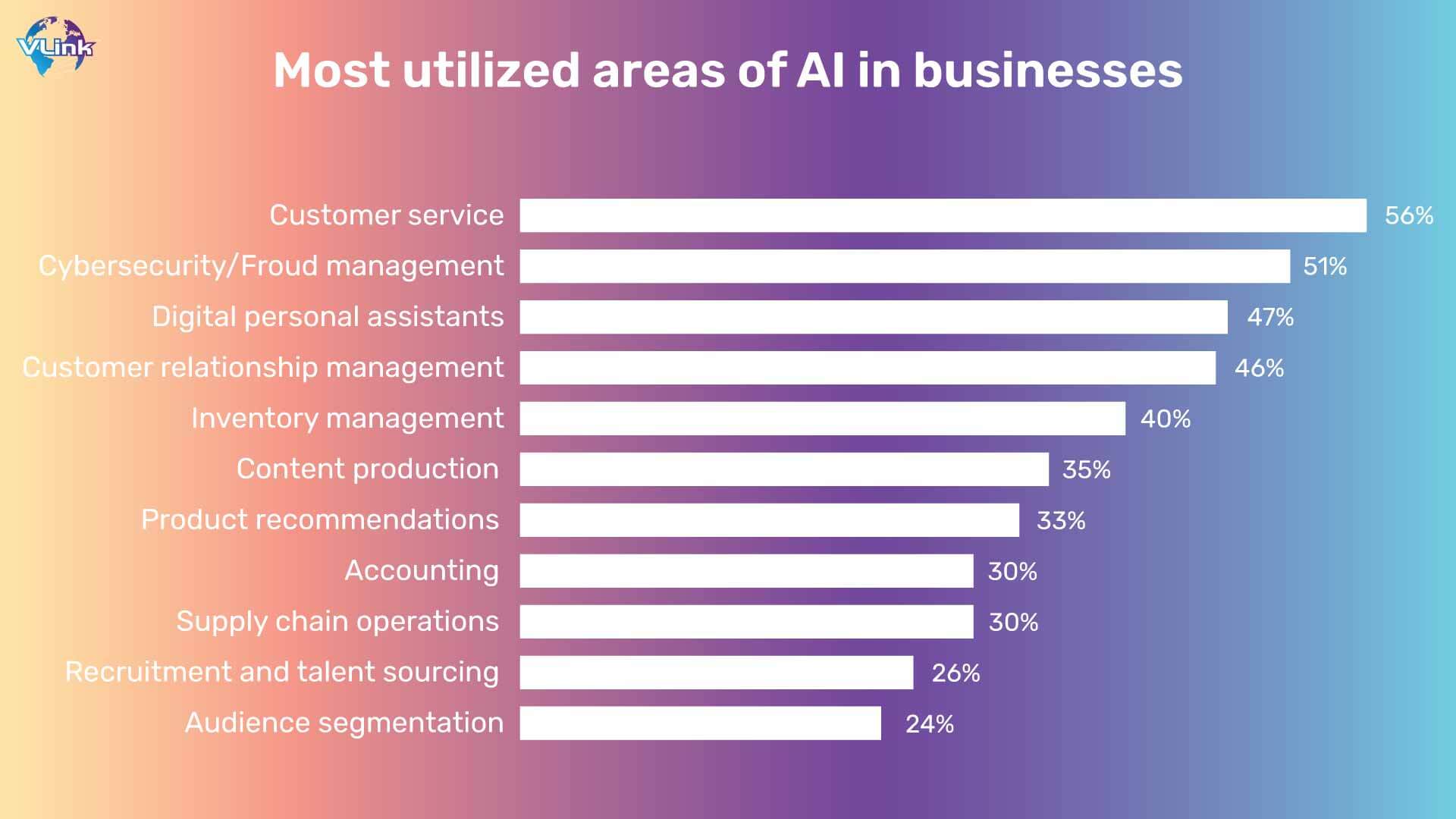 By employing AI, professionals you can now concentrate their important time on tasks that need human skills like creativity, inventiveness, and critical thinking. This automation boosts productivity, cuts costs, and fosters efficiency for businesses in addition to improving operations.
By employing AI, professionals you can now concentrate their important time on tasks that need human skills like creativity, inventiveness, and critical thinking. This automation boosts productivity, cuts costs, and fosters efficiency for businesses in addition to improving operations.
The topic of AI may seem a little scary. However, we'll take you step-by-step through the full process so you can see that it's not as challenging as it appears.
Business benefits of AI
AI is unable to solve all of your problems on its own. But when combined with human expertise, automation employing AI may improve your company's performance in a variety of ways. You should be aware of the following three key benefits of using AI integration:
- Increased efficiency: AI may now be used to automate many labor-intensive tasks, freeing up your staff to focus on strategic, high-value work. Automating repetitive or low-value tasks can help you work more efficiently, make fewer mistakes, and save money and time.
- Improved employee satisfaction: Automating tedious tasks will allow your workers to focus on more engaging, fulfilling work. There is more opportunity for creativity therefore, and work-life balance is improved.
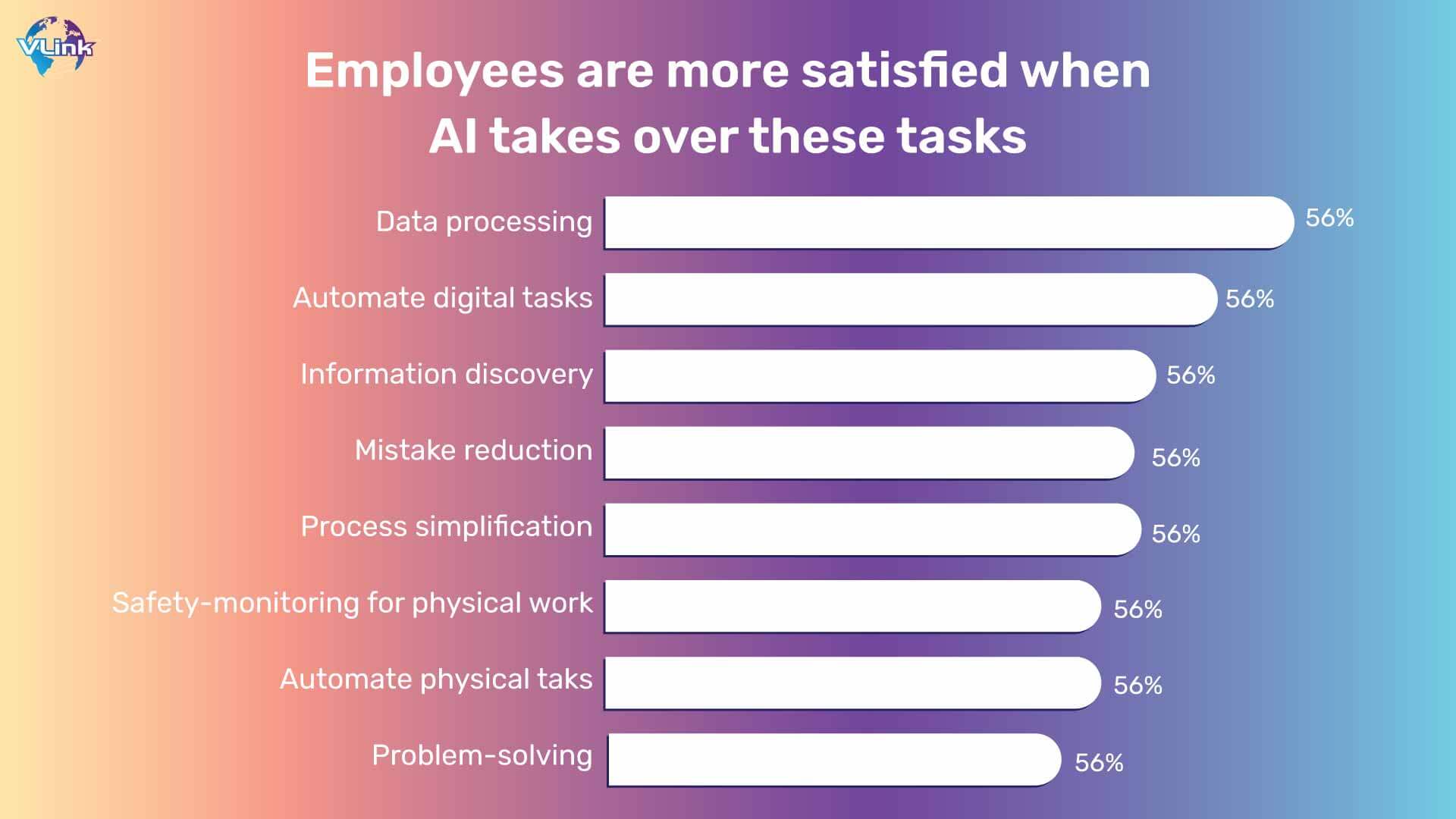
- Error reduction: Including AI in corporate processes can help prevent costly errors. People aren't made for repetitive, data-intensive workforce because they get bored, distracted, or worn out easily and make mistakes as a result. On the other hand, in certain operations, AI truly excels. By automating this sort of task with AI, we can decrease the risk of mistakes while also saving time and money.
- Competitive Advantage: If AI is incorporated into your daily operations, your business may acquire a competitive edge. Utilizing AI skills enables data-driven decision-making, personalized experiences, and process efficiency for your organization. This gives you the advantage over competitors and strengthens your market position.
We've observed in order to personalize features and content and improve the efficiency of their sales, production, and supply chain, industry giants like Netflix and Amazon have already incorporated AI automation into their business operations.
In addition to them, other people are also automating their procedures using AI. Because of the automation of repetitive tasks and the real-time identification of data patterns, agencies are functioning more effectively and efficiently than before.
How to integrate AI into a business?
Because using the newest technology has become essential to success in business, organizations shouldn't take AI integration lightly. If you want to integrate AI into your business, you must do it while keeping these challenges in mind. Use these five steps to maximize the promise of AI while taking into account its difficulties.
The first step to properly integrating AI is to create a specific application. Many AI systems fail, take too long, or cost more money because they lack vision. Select a specific, relevant use case before making any expenditures to prevent unfavorable outcomes.
Start by comparing the capabilities of modern technologies like AI with the business areas that need improvement. AI excels at repetitive, data-intensive tasks. Some organizations have been able to save 15,000 person hours a year by automating tasks like invoicing.
The next step is to compare this use case to the available AI alternatives. Examine the business's financial data while keeping these scenarios in mind to create an accurate AI budget that will help you avoid overspending.
Effective AI use in business requires an understanding of the conditions needed to develop or apply these models. For many firms, off-the-shelf options are preferred since they lack the internal resources to create their own AI. 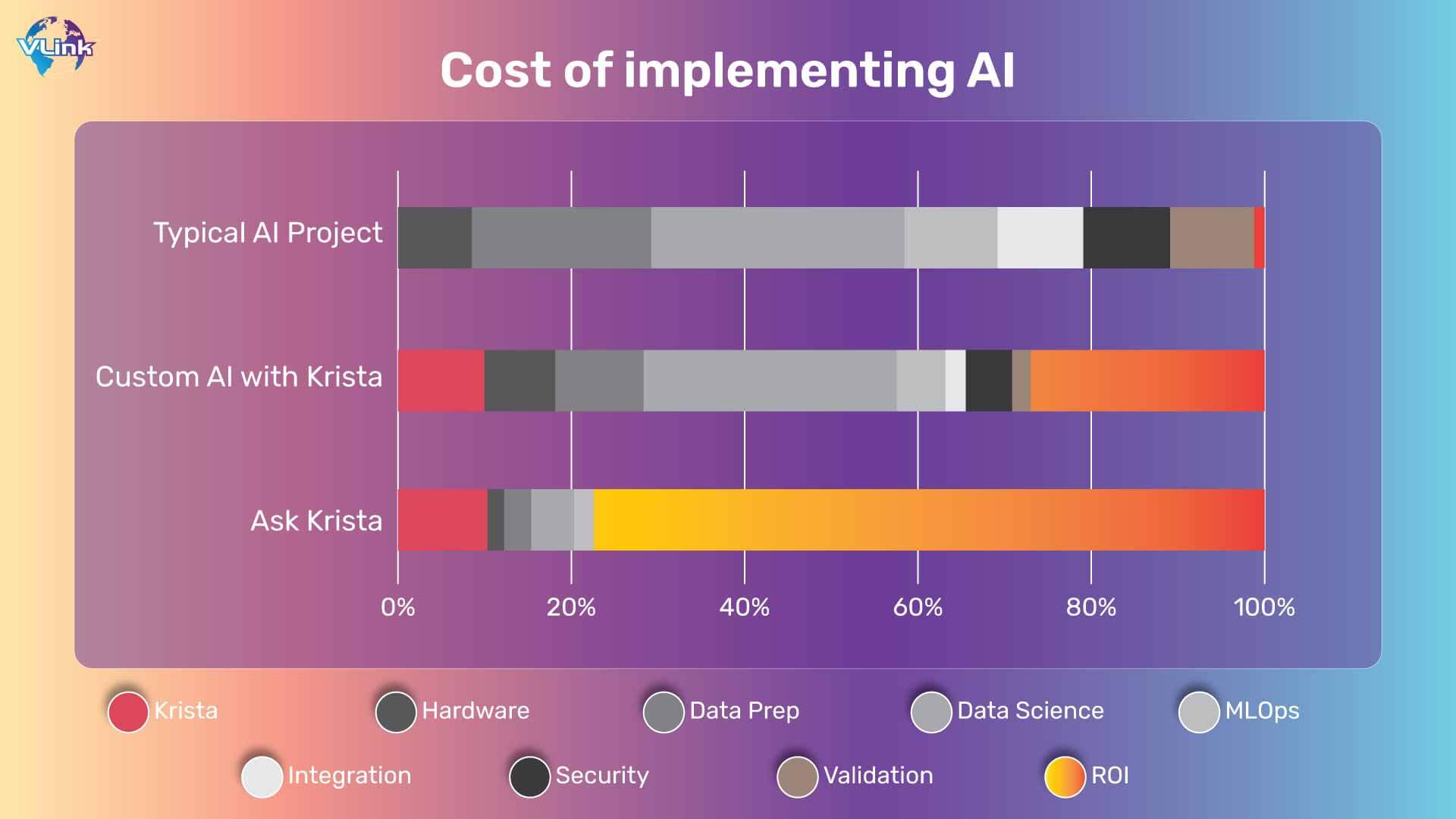 Consider the possibility of creating AI talent inside. Given that almost half of job seekers are interested in AI, upskilling job seekers so they can manage it may be an option.
Consider the possibility of creating AI talent inside. Given that almost half of job seekers are interested in AI, upskilling job seekers so they can manage it may be an option.
Establishing clear objectives and performance goals for their AI projects is a key component of successful firms with AI integration and tech-enabled operations. As a means of doing this, evaluate the current key performance indicators (KPIs) for the business activities AI may automate or otherwise influence.
After creating a baseline, set performance goals for after implementation. These objectives will make it easier to create an effective, result-driven AI solution and keep the project moving forward. Without them, the implementation of AI may be put off and its success may be uncertain.
Budgets, project objectives, and specific use cases have been established; it is now time to choose an AI solution. In this scenario, businesses have two main options: using a commercial AI solution or creating their own business-tailored AI system.
Because they are typically less expensive and easier to execute, firms using AI solutions are ideal for smaller companies or those with no prior AI knowledge. On the other hand, custom software development solutions could be more expensive and require more expertise, but they can deliver greater outcomes, especially for companies with unique requirements. 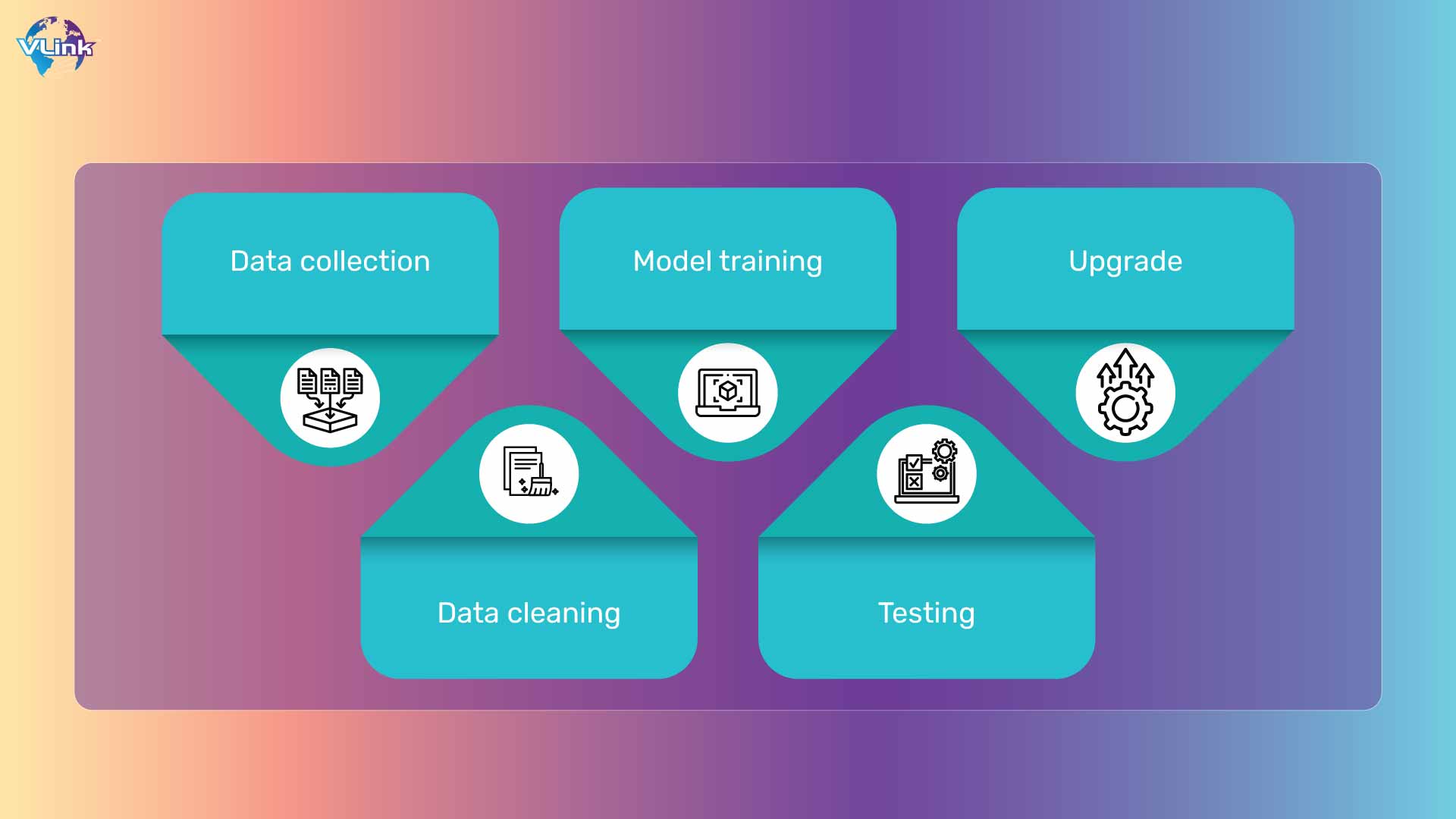 Whatever path a company takes, it must start by giving data security and privacy first attention. Teams should also assess integrated AI models to make sure they don't exhibit prejudice, risk copyright infringement, or have any other ethical issues. Independent audits may be able to provide these assurances.
Whatever path a company takes, it must start by giving data security and privacy first attention. Teams should also assess integrated AI models to make sure they don't exhibit prejudice, risk copyright infringement, or have any other ethical issues. Independent audits may be able to provide these assurances.
Businesses should prioritize their AI solutions after they have implemented them. Apply AI initially to a single, focused goal and only broaden it after results begin to appear, The financial strain is reduced, and a more successful deployment is made possible by this slower, more cautious approach.
Watch the same KPIs that you used to define performance goals. Future investments will benefit from knowing what worked and what might have been improved based on how well the AI application met these objectives.
Real-time applications of AI for business processes
AI can help process management experts increase the efficiency and worth of their business process management. When it comes to processing significant, complex information and generating actionable recommendations, human abilities eventually reach their limits. AI for business processes can be applied for different purposes, such as:
AI and machine learning for digital transformation might aid in process simulation by analyzing past process data. Machine learning and deep learning techniques may be used by AI algorithms to identify correlations and patterns in process data and incorporate them into simulation models. This simulation model allows for the modeling and evaluation of many scenarios and process variations.  AI enables a deeper knowledge by enabling the modeling of particularly complex connections and interactions between different process elements. Businesses are often better equipped to understand their operations, recognize threats and opportunities, and make informed decisions.
AI enables a deeper knowledge by enabling the modeling of particularly complex connections and interactions between different process elements. Businesses are often better equipped to understand their operations, recognize threats and opportunities, and make informed decisions.
In their companies, some employees are not satisfied with the decisions made. This is because major decisions take time and can involve several parties. AI may help with difficult decision-making processes by providing extensive information, simulating a variety of scenarios, or suggesting the optimal course of action.
It looks at information that is structured and unstructured from both internal and external sources, extracting all the information necessary to uncover trends that are crucial to the decision-making process.
Artificial intelligence may aid in the analysis, visualization, and enhancement of business processes in the context of process mining. A possible application is automated process discovery. AI may help in automatically detecting and modeling processes by analyzing data from various source systems (like CRM or ERP systems). 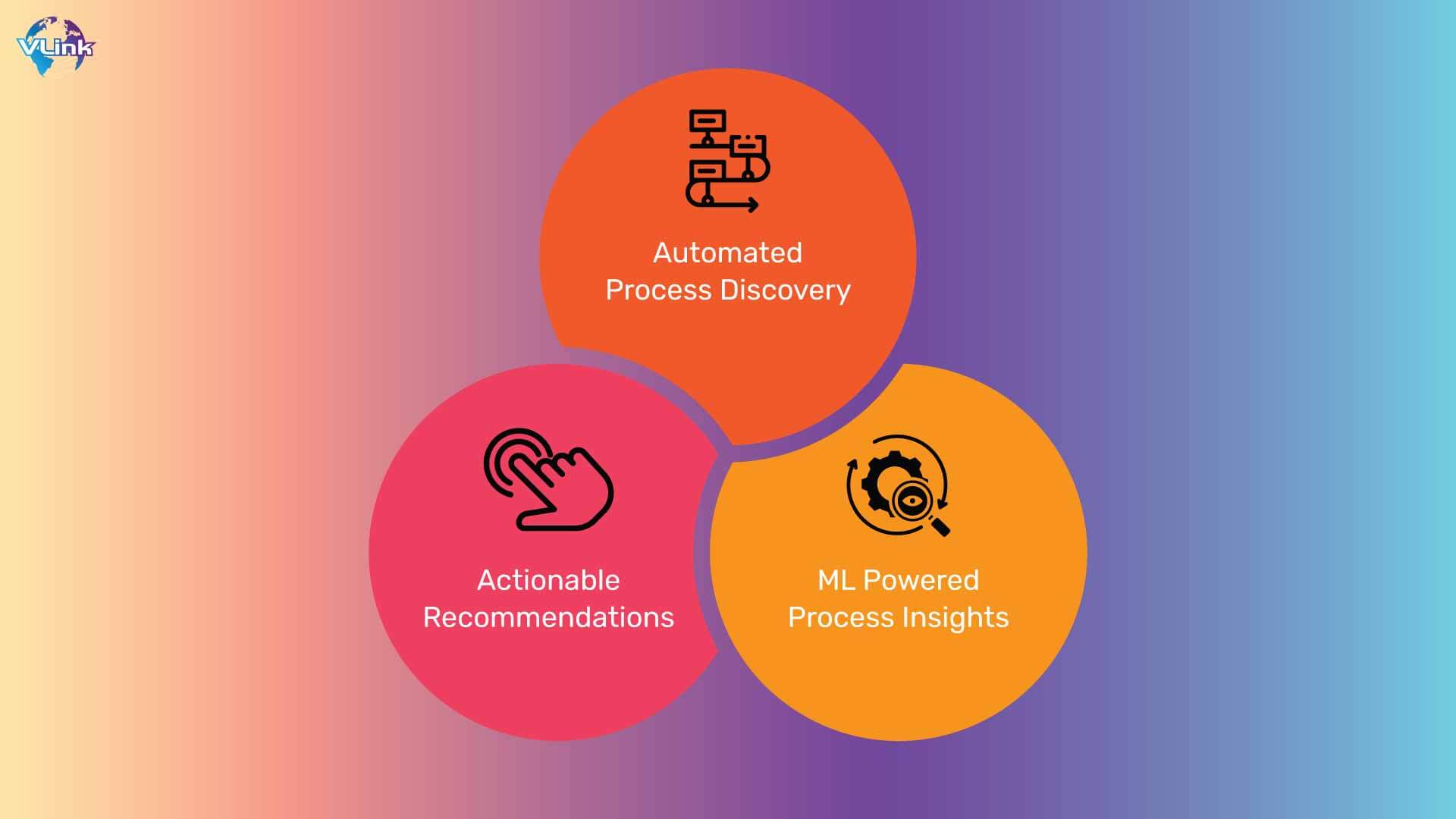 The key advantage of AI-driven process mining is that it allows for real-time process monitoring as opposed to post-process analysis. Businesses may obtain the most recent information about the status of the process through real-time monitoring and, if necessary, respond quickly to resolve problems or seize opportunities.
The key advantage of AI-driven process mining is that it allows for real-time process monitoring as opposed to post-process analysis. Businesses may obtain the most recent information about the status of the process through real-time monitoring and, if necessary, respond quickly to resolve problems or seize opportunities.
Two further uses of AI are processing and risk forecasting. To identify patterns and trends, historical data on process behavior and outcomes is obtained and reviewed. This knowledge is then used to make predictions regarding the future trajectory of processes.
For instance, this makes it possible for organizations to see bottlenecks early on and clear them out to avoid process flow delays. Additionally, it enables companies to alter their operations quicker in reaction to market and client demand changes. AI frequently makes it feasible to adopt a proactive and forward-looking strategy.
Another field where artificial intelligence is playing a bigger role is process automation. Artificial intelligence (AI)-enabled software bots may be built to do manual, routine, and rule-based tasks.
These digital robots carry out tasks that would often be undertaken by workers on their own, significantly speeding up processes, lowering costs, and reducing errors. Because of this, employees may focus on more difficult jobs, resulting in more effective utilization of human resources.
How VLink can help in integrating AI for business process
The AI transition is unmistakably here to stay. Every business must ultimately adopt it and build a useful artificial intelligence ecosystem if it hopes to stay competitive. There is a potential that your business will be an exception, but there is a strong likelihood that organizations which do not incorporate AI in some way will ultimately fall behind.
A team of highly qualified AI implementation consultants at VLink, a reputable provider of artificial intelligence services, are intimately knowledgeable about the nuances of AI and machine learning. These cutting-edge technologies may be seamlessly included into your app thanks to our AI implementation technique, producing excellent results.
The thought of integrating AI for business is no longer a sci-fi concept thanks to advancements in technology. The future is now, and implementing this technology in your business is a smart move to maintain market competitiveness.
Frequently Asked Questions
AI aids companies in streamlining procedures and increasing operational effectiveness. For instance, before AI was included into BPM, the majority of teams would construct their processes by manually building process maps, which took a lot of time and effort. Now, AI can handle the labor-intensive part of creating a process.
AI may be used to evaluate data, generate predictions, automate processes, or provide solutions to issues. Business intelligence that uses artificial intelligence is a crucial tool for companies and organizations looking to boost production and efficiency.
Answering verbal inquiries from clients over the phone using AI voices. AI-based chatbots may be used by websites for small enterprises to communicate with customers. When people utilize voice search on their mobile devices, they are looking up information. Voice responses are perfect for on-the-go customers.







